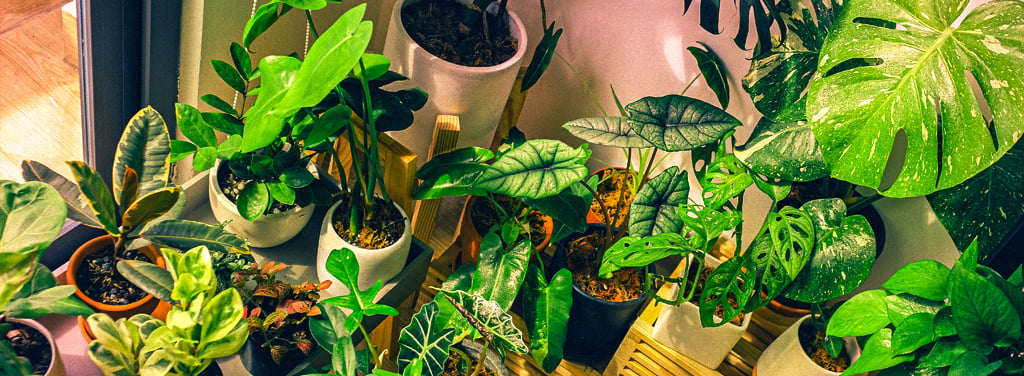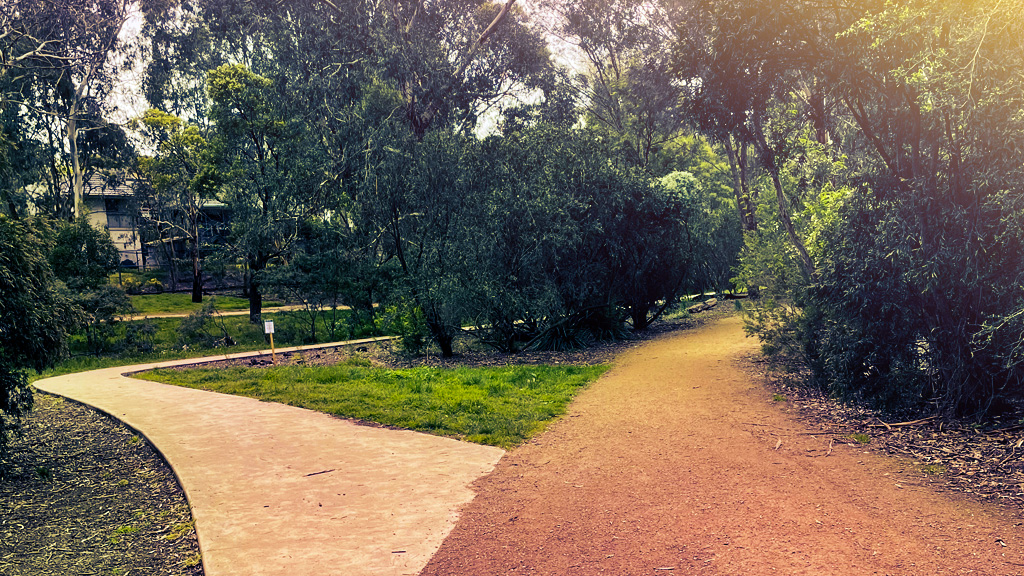Wellbeing in wandering
There is a limit to the amount of time I can spending staring at a computer screen. When the words on the screen start to get fuzzy, is usually when my Apple Watch starts vibrating. This alerts me to the fact that I haven’t moved in the last 50 minutes. I take this signal to do something for my wellbeing. However, I noticed my approaches to keeping my wellbeing in balance are different depending if I am on campus or at home.
On campus
When I am working on site, I usually take this cue from my watch walk to the kitchen to refill my water bottle. Perhaps I’ll take the few extra steps to use the “good” toilets on campus. I might even head over the bridge at Burwood or across the road when I am at Waterfront, to get a coffee from the “good” coffee/hot chocolate place.
Staying within the library, I could stroll around the library to look at how students are using the space. I have noticed that the big chairs at Burwood seem to be the hottest piece of property. At Waterfront, the desks facing the shore are always packed with students. I could coast over to my favourite piece of art or try to find new piece of artwork in the library.
The campuses are surrounded by great spaces to go for a wander. I could head along the creek after a lunch of tasty dumplings. Sit a pond to have lunch in the company of several waterfowls. Dawdle through Geelong to another “good” coffee/hot chocolate spot, for the second or third coffee of the day.

Photo by Huy Phan from Pexels
At home
When I am working from home, I often ignore the alert from my watch. I walk a few steps to the kitchen to get a beverage. Yet it doesn’t feel the same sense as when I am working on campus.
Below are some tips from online resources on useful wellbeing practices:
- Digital detox. Technology keeps us connected 24/7, which makes it difficult for the brain to switch off. Try no technology in the evening, such as spend quality time with family and friends.
- Get outside. Go for a walk, tend to your garden, or read a book in the fresh air and sunshine
- Find spaces that promote separation from work. These spaces have been shown to support mental and physical replenishment. Take a break on your couch or find a sunny spot to work in.
- Establish end-of-day rituals. It can be hard to switch off your brain around work. Try meditation, journaling, listening to music, starting a hobby, or exercise.
- Take breaks. It is important to take breaks to let your brain and body relax. Short breaks will help give you the ability to refocus on your work tasks.
- Eat well, sleep well and exercise well. These are three cornerstones of good physical health. Have a sufficient lunch. Don’t compromise on sleep. Keep up physical activities.
- Practice mindfulness techniques to help reduce stress levels and improve focus. Do a deep breathing routine to help you focus before working through one task at a time.
*DISCLAIMER: If this time of year is one of your body’s natural enemies, please be sure to have hay fever tablets and asthma puffers at the ready.
Post authored by Emeka Anele.
